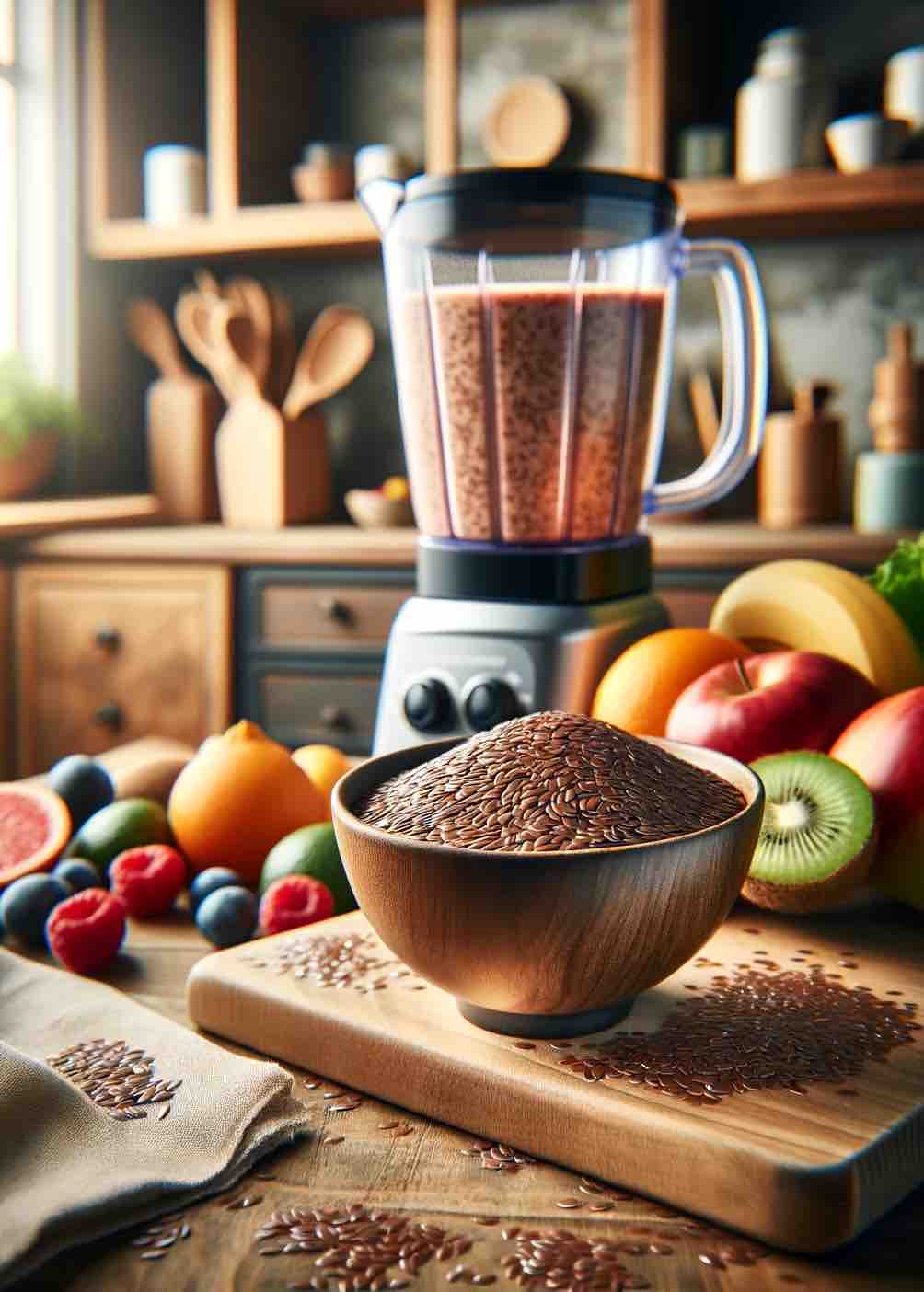
Vitamin C, also known as ascorbic acid, is a crucial nutrient that plays many roles in the body. It’s a powerful antioxidant that can strengthen your body’s natural defenses, boosting your immune system. It also contributes to maintaining healthy skin, promoting collagen production, aiding iron absorption, and supporting overall well-being.
Rich Sources of Vitamin C
Vitamin C is abundant in various fruits and vegetables. Here are some of the top vitamin C foods to incorporate into your diet:
1. Citrus Fruits
Unsurprisingly, citrus fruits top the list of vitamin C rich foods. Here are some common citrus fruits packed with vitamin C:
- Oranges: A single medium orange can offer over 70mg of vitamin C.
- Grapefruit: This tangy fruit provides about 44mg of vitamin C per half fruit.
- Lemons: Though not usually consumed in large amounts, lemons have about 30mg of vitamin C per fruit.
- Limes: Like lemons, limes aren’t eaten as a standalone fruit, but they contain about 20mg of vitamin C per fruit.
2. Berries
Berries are a delicious and healthy source of vitamin C. They include:
- Strawberries: One cup of strawberries offers about 85mg of vitamin C.
- Blueberries: A cup of fresh blueberries delivers about 14mg of vitamin C.
- Raspberries: These contain about 30mg of vitamin C per cup.
3. Tropical Fruits
Several tropical fruits are known for their high vitamin C content:
- Kiwi: This small fruit provides a whopping 64mg of vitamin C.
- Pineapple: A cup of pineapple chunks contains about 79mg of vitamin C.
- Mango: This juicy fruit contains about 45mg of vitamin C per fruit.
- Papaya: This fruit offers about 95mg of vitamin C per serving.
4. Melons
Melons, though not as high in vitamin C as citrus or tropical fruits, still offer a good amount:
- Cantaloupe: One cup of this melon delivers about 58mg of vitamin C.
- Watermelon: A cup of diced watermelon provides about 12mg of vitamin C.
5. Vegetables
Several vegetables are also rich in vitamin C:
- Bell Peppers: Red bell peppers, in particular, are a fantastic source, with about 190mg per cup.
- Broccoli: A cup of broccoli provides about 81mg of vitamin C.
- Spinach: This leafy green vegetable provides about 18mg of vitamin C per cup.
- Brussel Sprouts: These mini cabbages pack about 48mg of vitamin C per cup.
- Potatoes: A medium potato delivers around 42mg of vitamin C.
6. Other Vitamin C-Rich Fruits and Vegetables
Several other fruits and vegetables are also great sources of vitamin C:
- Tomatoes: A medium tomato contains about 17mg of vitamin C.
- Carrots: A cup of chopped carrots provides about 7.6mg of vitamin C.
- Bananas: Though not very high in vitamin C, a medium banana still delivers about 10mg.
Fruits Rich in Vitamin C and Zinc
While there are many fruits rich in Vitamin C, few are good sources of zinc. Nevertheless, some fruits can be combined with zinc-rich foods to boost your intake of both nutrients:
- Citrus fruits: Oranges, grapefruits, lemons, and limes are all rich in vitamin C. Pair these with zinc-rich nuts or seeds for a balanced snack.
- Kiwis: Not only are kiwis rich in vitamin C, but they also contain a small amount of zinc.
- Strawberries: These berries are a great source of vitamin C. They can be paired with Greek yogurt, which is a good source of zinc.
- Pineapple: Pineapple is another fruit that offers a healthy dose of vitamin C. It can be combined with chicken, a good source of zinc, in a stir-fry or salad.
- Guava: This tropical fruit is an excellent source of vitamin C. Combine it with cashews or chickpeas, both high in zinc, for a nutrient-rich snack.
Citrus Fruits Vitamin
Citrus fruits are famously high in vitamin C, a vital nutrient for maintaining a healthy immune system, promoting wound healing, and aiding in the absorption of iron from the diet. Here are the most common citrus fruits packed with vitamin C:
- Oranges: Oranges are one of the most popular sources of vitamin C. In addition to the fruit itself, orange juice also provides a substantial amount of vitamin C.
- Grapefruits: Grapefruits are another citrus fruit high in vitamin C. Both the pink and white varieties offer a good amount of this nutrient.
- Lemons: While not often consumed as a fruit, lemons offer a high amount of vitamin C. Lemon juice can be used in a variety of dishes or added to water for a vitamin C boost.
- Limes: Similar to lemons, limes are high in vitamin C and can be used in many culinary applications.
Fruits Without Vitamin C
While many fruits are known for their vitamin C content, there are a few that contain little to none of this essential nutrient. These include:
- Bananas: While bananas are rich in other nutrients like potassium and vitamin B6, they contain very little vitamin C.
- Apples: Apples contain a small amount of vitamin C, but it is significantly less than many other fruits.
- Avocados: Known for their healthy fats and fiber, avocados are not a good source of vitamin C.
- Cherries: Both sweet and tart cherries contain relatively little vitamin C.
Remember, even though these fruits may not contain a high amount of vitamin C, they are still rich in other essential nutrients and should be included as part of a balanced diet.
Vitamin C Supplements
While getting vitamin C from whole food sources is preferred, some individuals may benefit from vitamin C supplements. These can come in several forms:
- Tablets/Capsules: The most common form of vitamin C supplements.
- Chewable: For those who dislike swallowing pills, chewable vitamin C can be a good option.
- Liquid: Liquid vitamin C is often used for children or adults who can’t swallow pills.
- Powder: Some people prefer to mix vitamin C powder into their drinks.
Choosing the Best Vitamin C Supplement
There are many vitamin C supplements on the market, but not all are created equal. Here are some tips to help you choose the best one for your needs:
- Choose Whole Food-Based Supplements: These are made from foods rich in vitamin C rather than synthesized in a lab. They often contain other beneficial compounds found in these foods.
- Avoid Synthetic Ascorbic Acid If Possible: Some research suggests that synthetic ascorbic acid is not as easily absorbed by the body as natural vitamin C.
- Check for Added Sugars: Some chewable and liquid supplements can be high in added sugars.
- Consider Your Dietary Restrictions: If you’re vegan, gluten-free, or have other dietary restrictions, make sure to choose a supplement that fits your needs.
When is the Best Time to Take Vitamin C?
Determining the optimal time to take vitamin C can depend on the individual and their specific health needs. As a water-soluble vitamin, it’s generally well-tolerated at any time of the day. However, some experts suggest taking it in the morning to boost your immunity throughout the day. Others advocate for taking it with a meal to enhance iron absorption. Ultimately, it’s important to establish a routine that ensures consistent intake.
Vitamin C for Skin Health
Vitamin C is not only essential for your immune health and iron absorption but also plays a key role in maintaining healthy skin. It promotes collagen production, which can help maintain skin elasticity and reduce the appearance of wrinkles. Vitamin C is also a powerful antioxidant that can protect the skin from damaging free radicals and UV exposure.
Vitamin C and Iron Absorption
One of the lesser-known benefits of vitamin C is its ability to enhance iron absorption. Consuming vitamin C with iron-rich foods can improve the body’s ability to absorb this essential mineral, reducing the risk of iron deficiency anemia. Iron and vitamin C supplements are often combined for this reason.
Vitamin C in Drinks
Many beverages are rich in vitamin C, from freshly squeezed orange juice to vitamin-infused waters and drinks. However, keep in mind that some vitamin C drinks may be high in added sugars, which can lead to other health issues if consumed excessively. Opt for drinks that are naturally high in vitamin C, such as citrus juices, or consider adding a splash of lemon or lime to your water for a vitamin C boost.
Vitamin C in Different Cooking Methods
The vitamin C content of foods can be affected by cooking methods. As a water-soluble nutrient, vitamin C is sensitive to heat, light, and air. Boiling can cause significant losses, whereas steaming, microwaving, or grilling might preserve more of this nutrient. To maximize your vitamin C intake, try to incorporate a variety of both raw and cooked fruits and vegetables into your diet.
The Role of Vitamin C in a Balanced Diet
While vitamin C is crucial, it’s just one piece of the puzzle when it comes to a balanced diet. A healthy eating pattern should include a variety of nutrients to support overall health. This includes a mix of vitamins, minerals, fiber, protein, healthy fats, and complex carbohydrates. Including a range of vitamin C-rich foods in your diet is an excellent step towards achieving this balance.
Benefits of Vitamin C Supplements for Skin
Vitamin C supplements can provide numerous benefits for skin health. These include promoting collagen production, providing antioxidant protection against free radicals, reducing hyperpigmentation, and improving hydration. However, it’s important to note that while supplements can support skin health, they should not replace a balanced diet or a comprehensive skincare routine.
Vitamin C Content of Foods
The vitamin C content of foods can vary significantly. Fresh fruits and vegetables are usually the best sources. For example, a medium orange contains about 70mg of vitamin C, while a cup of strawberries provides about 85mg. Green and red bell peppers are also high in vitamin C, with a single pepper providing as much as 190mg.
Drinks High in Vitamin C and Low in Sugar
Opting for beverages high in vitamin C but low in added sugars is an excellent way to supplement your daily vitamin intake. Here are some drinks you can enjoy:
- Citrus-infused water: A simple way to get your daily vitamin C intake is by infusing your water with citrus fruits like oranges, lemons, or limes. They add a refreshing taste and a good dose of vitamin C without any added sugar.
- Guava juice: Guavas are one of the richest sources of vitamin C, and their juice is naturally sweet, so there’s no need for added sugars.
- Strawberry and kiwi smoothie: Both strawberries and kiwis are excellent sources of vitamin C. Combine them in a smoothie for a refreshing, nutrient-packed drink.
- Tomato juice: While we often associate vitamin C with fruits, vegetables like tomatoes are also an excellent source.
- Bell pepper juice: Red bell peppers contain almost three times more vitamin C than an orange. Juicing them might be an unconventional choice, but it can be a great way to increase your vitamin C intake.
Drinks with Zinc and Vitamin C
Zinc and vitamin C are both essential nutrients that can boost your immune system. Here are a couple of drinks that contain both:
- Citrus and pumpkin seed smoothie: Citrus fruits for vitamin C and pumpkin seeds for zinc make this a powerhouse of a smoothie.
- Spinach, kiwi, and chia seed smoothie: This smoothie combines the vitamin C-rich kiwi and iron-rich spinach with the zinc provided by chia seeds.
Best Drinks for Vitamin C
The best drinks for vitamin C are typically fresh, unsweetened fruit and vegetable juices. Some top contenders include:
- Orange juice: This classic juice is packed with vitamin C. Freshly squeezed is always the best choice as it has no added sugars or preservatives.
- Grapefruit juice: Grapefruit juice is another excellent source of vitamin C. As with orange juice, opt for freshly squeezed whenever possible.
- Acerola cherry juice: Acerola cherries are one of the richest sources of vitamin C. If you can find them, they make a very potent juice.
- Camu Camu juice: Camu Camu berries are considered a superfood due to their extremely high vitamin C content. You can find Camu Camu powder in health food stores and add it to your drinks.
Vitamin C Drinks
Many different drinks can be fortified with vitamin C or naturally contain high levels of the vitamin. These include:
- Emergen-C: This is a fizzy drink mix that’s high in vitamin C. It’s intended to boost immune function and comes in a variety of flavors.
- Vitamin Water: Some varieties of this brand’s fortified water contain a substantial amount of vitamin C.
- Teas: Certain herbal teas, such as rosehip or hibiscus, are high in vitamin C.
Remember, while these drinks can help increase your vitamin C intake, they shouldn’t replace a balanced diet rich in a variety of fruits and vegetables.
Frequently Asked Questions on Vitamin C
The importance of vitamin C in our diet cannot be overstated, but understanding the best ways to incorporate it can sometimes lead to questions. Here we have answered some frequently asked questions about vitamin C to help provide a clearer picture of this essential nutrient.
1. What are the best food sources of vitamin C?
Citrus fruits such as oranges, grapefruits, lemons, and limes are well-known sources of vitamin C. Other fruits and vegetables, including kiwis, strawberries, pineapples, guava, bell peppers, broccoli, and spinach, are also rich in this nutrient.
2. What is the recommended daily intake of vitamin C?
For adults, the recommended daily intake of vitamin C is 75 mg for women and 90 mg for men. However, these amounts can vary based on individual health conditions and lifestyle factors. Always consult with a healthcare professional to determine the optimal amount for you.
3. Are vitamin C supplements as effective as getting it from food?
While vitamin C supplements can help you meet your daily intake, getting this nutrient from whole foods is generally considered better. Whole foods provide a complex array of nutrients that work together in ways that supplements can’t fully replicate.
4. How does cooking affect the vitamin C content in foods?
Vitamin C is sensitive to heat, so cooking can reduce the amount in foods. To get the most vitamin C, consume fruits and vegetables raw or lightly steamed.
5. What are some symptoms of vitamin C deficiency?
Symptoms of vitamin C deficiency, known as scurvy, can include fatigue, swollen gums, joint pain, and anemia. If you suspect a deficiency, seek medical attention.
6. What are the benefits of vitamin C for the skin?
Vitamin C can help protect the skin from sun damage, promote collagen production, and reduce signs of aging. It’s often found in skincare products for these reasons.
7. What are some fruits that are surprisingly low in vitamin C?
While most fruits contain some amount of vitamin C, bananas, apples, avocados, and cherries are among those that contain less than many others.
8. Are there drinks that are high in vitamin C?
Yes, many fruit juices, especially those from citrus fruits, are high in vitamin C. However, be aware that these can also be high in sugar. There are also fortified drinks and smoothies that can provide a good amount of vitamin C.
9. Can you get too much vitamin C?
While it’s difficult to get too much vitamin C from food alone, taking high-dose supplements can lead to side effects like stomach cramps, diarrhea, and nausea. Always consult with a healthcare professional before starting any supplement regimen.
10. How does vitamin C help with iron absorption?
Vitamin C enhances the absorption of non-heme iron, the type of iron found in plant-based foods. By eating iron-rich and vitamin C-rich foods together, you can significantly increase your iron absorption.
11. Are there fruits rich in both vitamin C and zinc?
While there are many fruits rich in vitamin C, few are good sources of zinc. However, some fruits like kiwis can be paired with zinc-rich foods for a balanced snack.
12. Does cooking destroy vitamin C in vegetables?
Yes, vitamin C is sensitive to heat. To maximize the vitamin C content, eat vegetables raw or lightly steamed whenever possible.
13. Can taking vitamin C supplements help prevent or treat colds?
While vitamin C is important for immune function, research shows that for most people, taking vitamin C supplements does not reduce the risk of getting a cold. However, for people under intense physical stress, vitamin C might slightly reduce the risk of getting a cold.
14. What are the best vegetarian sources of vitamin C?
Many fruits and vegetables are excellent sources of vitamin C, making it easy for vegetarians to meet their needs. These include citrus fruits, strawberries, bell peppers, kiwis, and broccoli.
15. Do all citrus fruits contain vitamin C?
Yes, all citrus fruits contain vitamin C, with oranges, grapefruits, lemons, and limes being particularly high in this nutrient.
16. How does vitamin C benefit the immune system?
Vitamin C helps stimulate the production of white blood cells, which help protect the body against infection. It also functions as an antioxidant, protecting cells from harmful free radicals.
17. Can you get vitamin C from drinking orange juice?
Yes, orange juice is an excellent source of vitamin C. However, it can also be high in sugar, so it’s best to consume it in moderation.
18. Does vitamin C help with stress?
Vitamin C plays a key role in stress response by supporting the adrenal glands, which produce stress hormones. However, it’s just one piece of the puzzle, and overall lifestyle changes are needed for stress management.
19. Is vitamin C good for heart health?
Vitamin C is thought to help maintain heart health by preventing free radical damage, reducing blood pressure, and lowering bad cholesterol levels. However, more research is needed to fully understand these relationships.
20. Can vitamin C improve mood?
There’s some evidence to suggest that vitamin C may play a role in mood regulation. For instance, a deficiency in vitamin C is associated with an increased risk of depression and mood swings. However, more research is needed to confirm these findings.
21. How does vitamin C benefit the skin?
Vitamin C is an essential nutrient for skin health. It promotes collagen production, which can help keep the skin firm and youthful. Additionally, as an antioxidant, it fights off free radicals that can damage skin cells and lead to premature aging.
22. Can people with diabetes benefit from vitamin C?
Some studies have suggested that vitamin C may help reduce blood glucose levels in people with type 2 diabetes, but more research is needed. Always consult a healthcare provider before beginning any supplement regimen.
23. What are the signs of too much vitamin C?
While it’s rare, consuming too much vitamin C can lead to symptoms like diarrhea, nausea, vomiting, heartburn, abdominal cramps, and insomnia. These are more likely to occur if you’re taking vitamin C in supplement form rather than getting it from food.
24. Can you get vitamin C from meat?
Meat is not a significant source of vitamin C, as this vitamin is found primarily in fruits and vegetables. However, organ meats like liver do contain some vitamin C.
25. How does smoking affect vitamin C levels in the body?
Smoking depletes vitamin C levels in the body, increasing the need for this essential nutrient. For this reason, smokers have a higher daily recommended intake of vitamin C compared to non-smokers.
Conclusion
Vitamin C plays an integral role in our body’s overall health, from enhancing immune function, skin health to aiding in the absorption of other crucial nutrients. A diet rich in Vitamin C sourced from a variety of fruits, vegetables, and fortified foods can help ensure you meet your daily requirement. However, supplementation can be a beneficial adjunct for those who have difficulty meeting their needs through diet alone. Regardless, understanding the best sources of this vitamin and how it interacts with our body is essential to optimizing our health and wellness.
Blog Tags: Vitamin C, Immune System, Healthy Diet, Fruits, Vegetables, Vitamin C Supplements, Vitamin C Sources, High Vitamin C Foods, Foods for Skin, Vitamin C Benefits, Vitamin C Deficiency, Citrus Fruits, Vitamin C Drinks, Vitamin C and Zinc, Vitamin C for Immune System, Whole Food Vitamin C, Vitamin C in Foods, Vitamin C Content in Fruits, Foods Rich in Vitamin C and Zinc, Vitamin C and Iron Absorption, Natural Vitamin C Sources.













